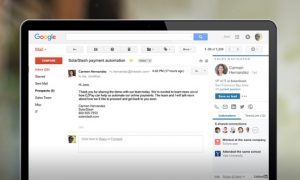Most articles about hiring or getting hired are from the perspective of the business. These articles will either advise job seekers how to apply or will attempt to mentor a crop of inexperienced hiring managers and HR minions on how to screen for the best candidates. This post is from the perspective of job seekers to companies looking to hire amazing candidates, but for one reason or another can’t find them. If you’ve been looking for a while and your candidate just isn’t to be found, you’re seeking a unicorn, or you’re scaring applicants away.
For my research, I asked over 50 people who will be seeking jobs in 2017. These are the top reasons why your job posting may be running off the cream of the crop.
Buzzword-laden Job Descriptions
This is from a real Marketing Manager job description someone shared:
“We’re a fast growing and innovative company seeking an energetic, go-getter who loves to rise to a challenge. The ideal applicant will thrive in the fast pace of our company’s collaborative environment. Applicant should have experience managing budgets for conversion marketing of disruptive products.”
First, as a rule, don’t say you’re innovative, be innovative. Second, say more about the role and the company. What are the “disruptive products”? Who are the customers of this “fast growing and innovative company”?
Also for any job where the hire will manage a budget you should list the budget range. Are you talking 3 million a month in paid media spend or is the annual marketing budget 20k? Knowing those numbers will tell an applicant a lot about the role.
Too Many Listed Requirements
A detailed list of all the qualifications candidates should have is excellent! But when a description is so specific that only the person who left the job could meet all the criteria you’ve gone too far. People won’t apply for the role if they feel they can’t fit the specifications of the prince charming candidate who likely only exists in the job description.
If you’re seeking a CTO for a social network, listing “MBA preferred bachelor’s degree required” would rule out Mark Zuckerberg. On the flip side, listing obvious qualifications is a waste of space. If you’re hiring a copywriter with five years of experience, you can probably leave “proficiency with Microsoft Word” or “fluency in English” off the description. For a rule of thumb if as an employer, a particular skillset would seem odd to list on a resume it likely doesn’t need to be in the job description.
As one person pointed out; “In many cases, HR is not qualified to screen candidates. A job description with many obvious qualifications increases the lack of faith in the ability of human resources to accurately assess my skill set.”
Not Posting a Salary Range
Over half of respondents said this was the number one reason they wouldn’t apply for a job they otherwise wanted. Most people have expenses and a lifestyle they’d like to maintain. So why would they apply for a job without knowing it has the potential to pay the amount they need to earn.
I understand the company’s perspective is not wanting to hire people who are motivated only by money. And while salary is almost always a negotiation, your business has an upper limit and a preferred amount you can pay. Not sharing that information in advance with job seekers will run away great candidates.
Making it Bizarrely Hard to Apply
Most job seekers understand HR wants to weed out the uninterested applicants, but if you make people jump through hoops, you’ll run off more than just duds. Qualified people will get scared off too.
A personal story for me that one-upped even the most ridiculous stories from those surveyed was being called by a staff recruiter and asked to apply for a job…. Make that tried to apply for a job. These were the steps that I was supposed to take. Keep in mind a recruiter called me and asked me if I’d be interested in interviewing. I was then emailed a link to fill out an intake form for HR. My commentary is in brackets.
- Connect your LinkedIn profile. [Great! They now have all my job history, relevant certifications, references and a bunch of publications]
- Upload your resume. [Alright, It has less info than Linkedin, so maybe you want a concise summary]
- Fill out this job history form [I’ve given you this information twice now, but I can copy and paste into the form.]
- Provide contact info for the last four companies you’ve worked. [First 4 is a lot, second I’ve owned the last two companies I’ve worked in, This is pretty clear if you view my LinkedIn, resume or job history]
- Provide at least four personal references. [4 is still a lot, but okay I will add them]
- Provide at least four professional references. [Here are four more people, if you look on LinkedIn you will see 15+ references and one of them was the founder of this particular company]
- Provide at least two education references. (These can be a teacher, professor or classmate.) [Are you kidding me? Thanks for telling me what these are because I had no idea]
- Please provide your last three residential addresses. [Are you trying to steal my identity? Because it’s starting to feel like you plan on stealing my identity]
By step 8 I had spent over 40 minutes, and I stopped… I didn’t want to work for a company that valued my time so little that they would have expected this from any applicant this early in the process. I’m sure someone in HR would say that I didn’t want the job badly enough and that I, therefore, wasn’t a fit. But as a job seeker, it looked like the company was unorganized and lacked respect for me as an applicant.
Did I mention that this was a job in user experience and conversion rate optimization? My perception was that everything in this company would be misguided bureaucracy and that I would never be able to optimize systems without pushback.
A Bad Company Reputation
Just like a company will research an applicant, the job seeker will research the company. Negative online reviews from former employees on Glassdoor or suspiciously frequent openings are huge red flags. A bad BBB rating, bad online reviews, high-pressure sales tactics (pyramid scheme for example) or an industry that is sketchy and known for high turnover easily turns a potentially great looking job into something that no good candidate would want.
Even if everything else within the application process is perfect, overcoming an F rating with the BBB or a perception that your product is a scam is hard. While there are companies with less than stellar reputations through no fault of their own, most of the time if it looks like a duck and quacks like a duck, it’s a duck.
Moving Forward
Based on my experiences and the feedback of others I know these are things that can quickly turn off a potential applicant before they apply. In many companies, bureaucratic and often misguided processes exist. One person may not have the control to fix the procedures a company uses to attract, entice, screen and hire the best staff.
But as a growing number of skilled freelance workers can help attest, something has to change. If companies want to attract top tier talent, they will have to do more than preaching about how that talent should consider themselves lucky to get an interview.
Business & Finance Articles on Business 2 Community(93)





